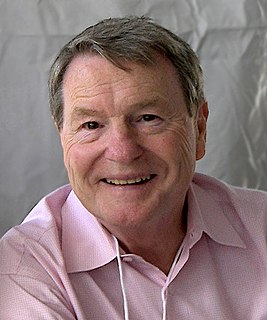A Quote by Ann Coulter
I really do not like having media moderators. Lincoln and Douglass didn't have moderators. Let the candidates ask one another questions.
Related Quotes
The world of TV debates is antiquated. What looked smart and modern in 1960, with Kennedy versus Nixon, looks quaint and over-rehearsed between Obama and Romney. We need a new format; even if we have the same moderators and candidates, there needs to be a more nuanced way for audiences to connect with and shape presidential debates.
Have you noticed that every one of these candidates for Presidency say: "Barack Obama's weak, Vladimir Putin's kicking sand in his face. When I talk to Putin, he's gonna straighten out. Just looking at him I'm gonna - he's gonna be - " and then it turns out they can't handle a bunch of CNBC moderators at a debate. I don't think the Chinese and the Russians are gonna be too worried about you.
Some call-in moderators are neutral and courteous. Then there's Rush Limbaugh, who is funny and pompous and a scapegoater and hatemonger. His popularity could cause you to draw some terrible conclusions about the state of mind of the American people. It helps to remember that Bill Cosby is popular, too.
It's always interesting to me when one platform of media crosses into another. We've been on the Terry Gross show Fresh Air a couple of times, and I suddenly felt like we could actually represent ourselves as exactly who we are, in this sort of ultra-vivid way. But the weird thing to me is that the questions she asks are in some ways no different than the questions the guy from the high-school paper asks. She might even ask us where we got our name. But something about it, it's like the pH balance of the trajectory of the questions. Maybe it's just her voice.
If you don't put the spiritual and religious dimension into our political conversation, you won't be asking the really big and important question. If you don't bring in values and religion, you'll be asking superficial questions. What is life all about? What is our relationship to God? These are the important questions. What is our obligation to one another and community? If we don't ask those questions, the residual questions that we're asking aren't as interesting.
I do interview senior candidates at the home office or many of our hotel or restaurant General Manager candidates. My two favorite questions are "Tell me about a failure in your career, what you learned from it, and how you've leveraged this lesson" and "All of us are misperceived at one time or another. What's the most common way you're misperceived in the workplace and why?" Both of these questions require a certain amount of self-awareness and a willingness to not give pat, normal answers that we offer experience in interviews.
Running for office in our country takes a lot of money, and candidates have to go out and raise it. New York is probably the leading site for contributions for fundraising for candidates on both sides of the aisle, and it's also our economic center. And there are a lot of people here who should ask some tough questions before handing over campaign contributions to people who were really playing chicken with our whole economy.
































